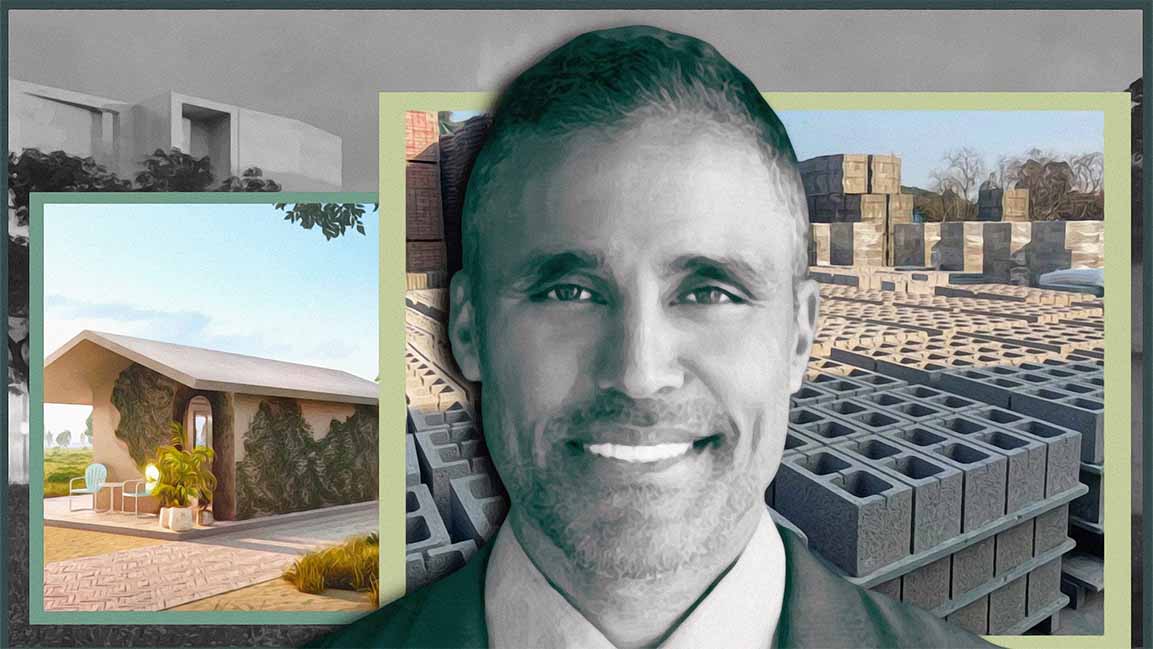- | 9:00 am
This former NBA star is bringing his carbon-negative concrete tech to Saudi Arabia
Rick Fox’s journey into climate entrepreneurship started out of adversity. Now he’s looking to save the planet with concrete change.

In 2019, the Bahamas was devastated by Hurricane Dorian. This event catalyzed a perspective shift for former NBA player, entrepreneur, and actor Rick Fox. Recognizing the urgent need, Fox embarked on a journey into climate entrepreneurship in search of hurricane-resistant housing.
“I’m a former NBA player, and I know what it feels like to be down 20 in the fourth quarter. I know what it feels like to look at the scoreboard and think a win is impossible,” he says while speaking about whether there is enough time to undo the damage done to the environment. “But coming from behind can be done one second, one position, one decision, and one main shot at a time.”
Fox, who played a material scientist in the sitcom The Big Bang Theory, says learning the science behind climate responsibility in real life is more challenging.
Through his network, he connected with Sam Marshall, an architect with a shared passion for climate initiatives. Together, they started Partanna.
ENGINEERING CONCRETE CHANGE
Fox says the Partanna binder actively absorbs carbon dioxide from the atmosphere. “This double benefit ensures that their solution is environmentally friendly and as strong and durable as traditional cement. We aim to address the urgent climate issues and revolutionize how the world builds,” he says.
Unlike traditional concrete, which requires ingredients produced solely for its production and emits significant amounts of carbon, Partanna concrete is made of recycled waste materials, such as steel slag and saline solution.
These components are widely available in many markets. Steel slag is a by-product of the steel manufacturing process and is generated in large quantities globally. Brine is produced as a waste product by many desalination plants, becoming increasingly common in areas where freshwater is scarce.
Since its launch, Partanna has tested its materials across geographies and climatic conditions. Having traveled extensively to champion a greener future, Fox says an interesting partnership at COP27, Sharm El Sheikh began with a meeting with Red Sea’s John Pagano.
“We’re excited because of the prospects and more ambitious measures here in the kingdom and throughout the region. This partnership helps us shape our strategic focus, the expansion of this material and technology, throughout the Gulf and then to the rest of the world.”
Red Sea Global, the developer of The Red Sea and Amaala, has signed a pilot project to lay Partanna’s carbon-negative concrete pavers at its landscape nursery, the largest in the region, which is set to grow more than 30 million plants by 2030.
A timely lesson that Fox says enables him to be optimistic about the future of climate change stems from the power of imagination.
“If we imagine that our time has run out, then our time has run out, if we suspect that if we keep moving our right foot in front of the other and making the right decisions, then we can turn this around and get to where we need to be.”
“Nothing is impossible, especially in the Middle East, where I’m experiencing a shift, commitment, and change toward sustainable development,” he adds.








































